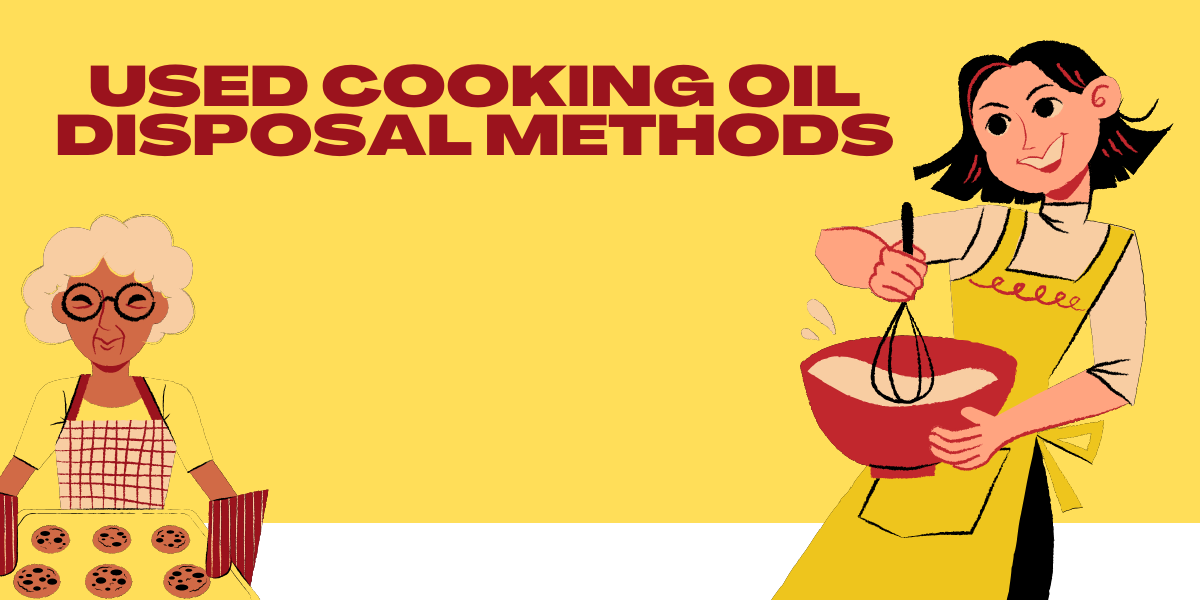
Sustainable Solutions: Used Cooking Oil Disposal Methods
In the heart of every kitchen, after a hearty meal is prepared and enjoyed, a common byproduct often goes unnoticed – used cooking oil. Whether it’s from frying, sautéing, or roasting, the disposal of used cooking oil can significantly impact the environment. However, with the right knowledge and choices, we can turn this seemingly mundane waste into a sustainable resource. This article explores various eco-friendly methods for the disposal of used cooking oil and how they contribute to a more sustainable future.
The Environmental Impact of Used Cooking Oil
Used cooking oil, when improperly disposed of, can wreak havoc on the environment. When poured down the drain, it can lead to clogged pipes and sewage system issues. In rivers and oceans, it can form unsightly oil slicks and harm aquatic life. Additionally, the carbon footprint from the improper disposal of used cooking oil is significant, as it contributes to greenhouse gas emissions.
1. Recycling Used Cooking Oil
One of the most sustainable methods for managing used cooking oil is recycling. This process turns old oil into a valuable resource. Used cooking oil can be collected and transported to recycling facilities where it undergoes several purification steps. The end result is biofuel, a clean and renewable energy source. Biofuels have a wide range of applications, including powering vehicles, heating homes, and generating electricity.
2. Repurposing for Cleaning
Another eco-friendly use for used cooking oil is as a cleaning agent. You can mix it with other household items like baking soda or vinegar to create a natural and effective cleaning solution. Not only does this reduce waste, but it also eliminates the need for harsh chemicals, making your cleaning routine more sustainable.
3. Composting with Caution
While composting is a generally sustainable method for disposing of organic waste, it’s essential to exercise caution when composting used cooking oil. Large amounts of oil can create an imbalance in your compost pile, leading to odor issues and impeding decomposition. However, small quantities of used cooking oil, when mixed with other compostable materials, can be broken down over time.
4. Donating to Animal Rescues
Surprisingly, some animal shelters and rescues accept used cooking oil donations. They use the oil to prepare meals for animals, especially during the cold winter months. While this method isn’t directly recycling the oil, it provides an alternative to pouring it down the drain and serves a good cause.
5. Local Recycling Programs
Many communities have established local recycling programs that accept used cooking oil. These programs may have drop-off locations or specific collection days. By participating in these initiatives, you ensure that your Used Cooking Oil Disposal of properly and, ideally, repurposed into biofuel.
6. Commercial Oil Collection Services
For restaurants and other commercial foodservice establishments, recycling used cooking oil is not only environmentally responsible but can also generate revenue. Many companies specialize in collecting used cooking oil, recycling it, and offering compensation to businesses in return. These services contribute to a circular economy and reduce the environmental impact of the foodservice industry.
Conclusion
Properly managing used cooking oil is not only environmentally responsible but also an opportunity to contribute to a more sustainable future. By choosing eco-friendly disposal methods like recycling, repurposing, or donating, we can reduce the environmental impact of this common kitchen waste. So, the next time you finish frying up your favorite dish, consider how you can turn your used cooking oil into a resource rather than a pollutant, and make a positive impact on the planet.


